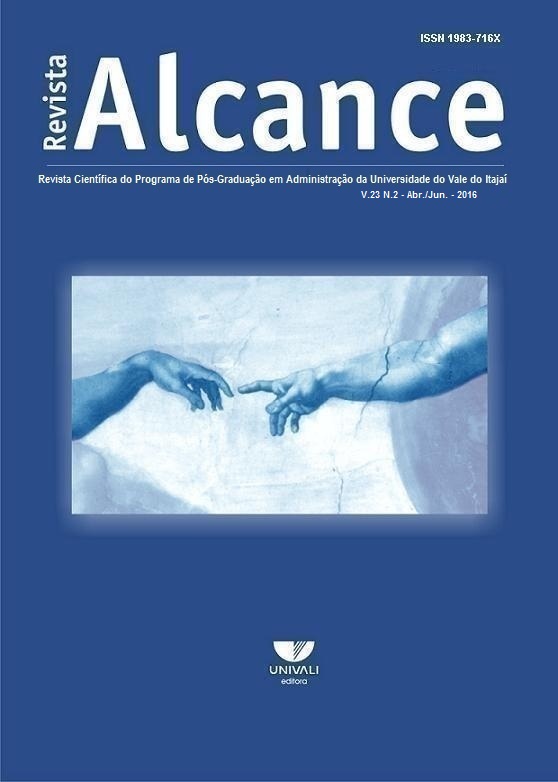ORGANIZATIONAL SURVIVAL OF CONSORTIUM MANAGERS IN BRAZIL: AN EVOLUTIONARY APPROACH
DOI:
https://doi.org/10.14210/alcance.v23n2.p170-188Keywords:
Evolutionary theory. Organizational survival. Consortium Managers.Abstract
Organizational survival is a recurring theme in the literature on management and economics, and has been explored, in particular, in the field of evolutionary theories. The purpose of this article is to analyze the organizational survival of Brazilian consortium managers, based on this evolutionary perspective. The approach is qualitative, using secondary data from the Central Bank and primary data collected through interviews with the directors of consortium managers. Data were analyzed using the technique of content analysis. The analysis is based on population ecology and evolutionary economics, and resulted in the identification of: a movement of mergers and acquisitions, and the reasons behind them, environmental changes, strategic alignment, relationship between the agents, effects of age and size, and aspects of management such as internal financing, profile of the customer portfolio and human resources, and innovation. It is concluded that breakups are prevalent in the industry (dynamism); survival is due to the differentiated service and especially, to innovation (strategic alignment); the strongest entry barriers faced by new competitors are probably the age and size of the institutions, and in relation to internal management, the freedom to fix management fees has been beneficial in differentiating consortium managers.Downloads
Published
2016-07-19
Issue
Section
Article


